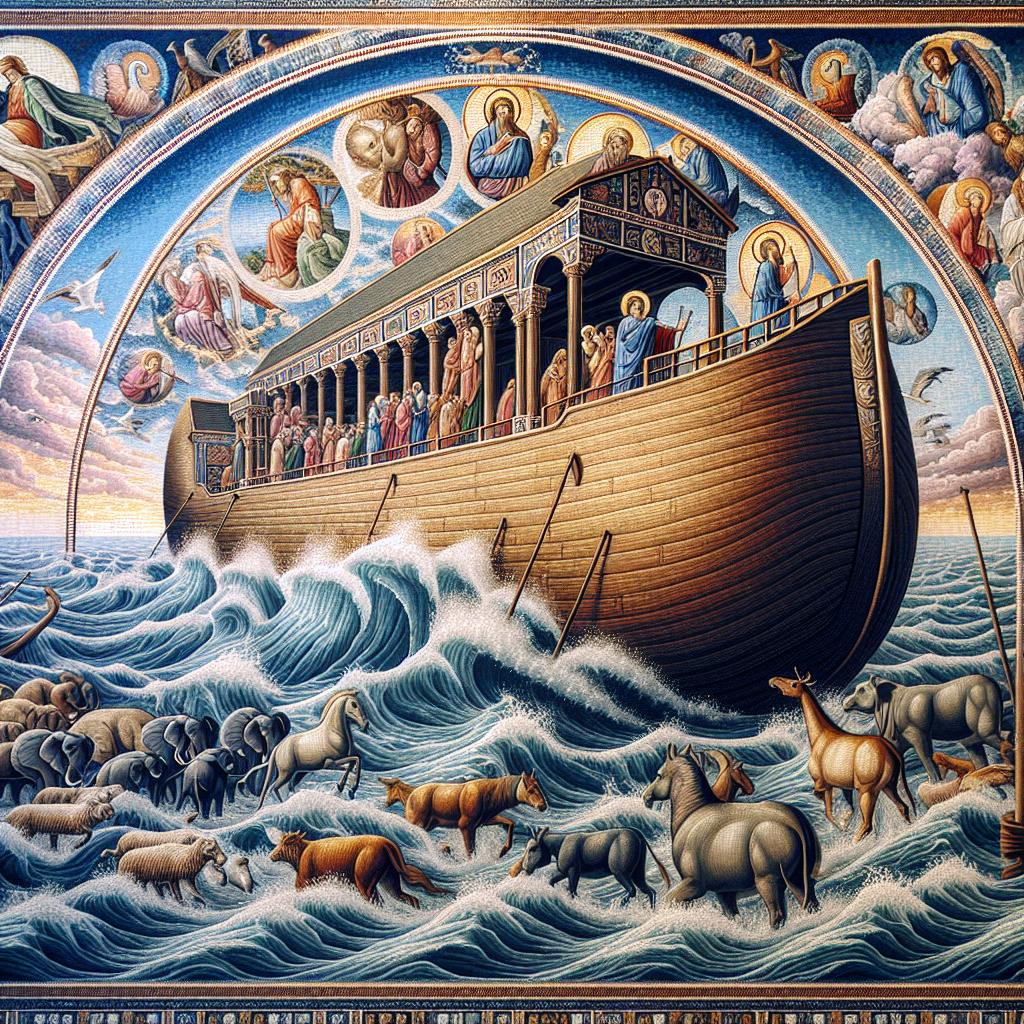
7 Church Fathers' Insights on the Biblical Flood: Unveiling Wisdom for Modern Christians
Published: 10 April 2024
The Church Fathers on the Genesis Flood
Central to the account of early earth history provided in the Bible is the global Flood in the days of Noah, described in Genesis 6–9. For modern young-age creationists, the Flood provides a framework for understanding the origin of the sedimentary rock layers and the fossils contained in them.
Although some critics have alleged that young-age creationism is a theological novelty that arose only in the last century or so, it can be demonstrated that belief in a worldwide Flood with geological effects was not a twentieth-century innovation. From the earliest days of the Christian church, the universality of the Flood was accepted on the testimony of the biblical text, and fossils were sometimes regarded as evidence of the cataclysm.
This can be readily illustrated by reviewing the writings of the Church Fathers on this subject. Here are some extracts from them.
Justin Martyr (103–165)
Justin Martyr affirmed the universality of the Flood when he wrote that ‘the whole earth, as the Scripture says, was inundated, and the water rose in height fifteen cubits above all the mountains’.
Theophilus (c. 115–185), Patriarch of Antioch
Theophilus noted Greek philosopher Plato's belief that the Flood 'extended not over the whole earth, but only over the plains' and that those who fled to high hills saved themselves. However, Theophilus rejected these ideas and emphasized Moses' account of the Flood as described in Genesis. He stated that Moses related how the flood came about and denied any fables about Pyrrha, Deucalion, or Clymenus. Furthermore, he wrote about how the flood lasted forty days and forty nights and destroyed all men except those protected in the ark. He even mentioned that remains of the ark can still be seen in Arabian mountains.
Tertullian (c. 160–225)
Tertullian, a Carthaginian apologist, spoke of fossils in the mountains as evidence of a time when the globe had been covered by water. He stated that marine conchs and tritons' horns were found on mountains, proving that even the heights have been affected by the flood.
Gregory of Nazianzus (329–389)
Gregory of Nazianzus described Noah as someone who was entrusted with saving the whole world from the waters. He emphasized that Noah escaped destruction in a small ark.
John Chrysostom (c. 347–407), Archbishop of Constantinople
John Chrysostom commented on the precision of Scripture in describing the year, month, and day of the Flood. He highlighted how Sacred Scripture described everything in a human manner, using terms customary to humans. For example, when it says that 'the waters obeyed their Creator’s command, fell out of the heavens on all sides and inundated the whole world.'
Augustine (354–430), Bishop of Hippo
Augustine rejected exclusively allegorical interpretations of the Flood account and criticized commentators who believed that there could not have been a flood so great that the water rose fifteen cubits above the highest mountains.
Pseudo-Eustathius (c. 375–500)
Pseudo-Eustathius pointed to fossils as evidence of the Flood. He mentioned how marine fishes were found on the summit of Mt. Lebanon, indicating that they must have been gathered together in the caves of mountains when they were caught in the mud during the Flood.
Procopius of Gaza (c. 465–528)
Procopius of Gaza also supported the idea of a universal flood by mentioning how marine remains such as shells and fragments of tortoise shells were found in lofty mountains that are difficult to climb.
In fact, it is worth noting that most Church Fathers accepted and affirmed the universality of the Flood as described in the biblical text. The historical evidence suggests that the idea of a global flood was not a recent invention but has deep roots in Christian interpretation of Scripture.
Why This Matters
Understanding the perspectives of the Church Fathers on the Genesis Flood is important because it shows that the belief in a worldwide flood is not a modern invention. It demonstrates that from the earliest days of the Christian church, the universality of the Flood was accepted based on the testimony of the biblical text. This historical context helps to strengthen and affirm the young-age creationist perspective, providing additional support for interpreting the geological record as evidence of Noah's Flood.
Think About It
Consider how the Church Fathers' affirmation of a global flood challenges the notion that young-age creationism is a theological novelty. What impact does this historical perspective have on your understanding of the biblical account of the Flood and its significance in interpreting Earth's geological history?
